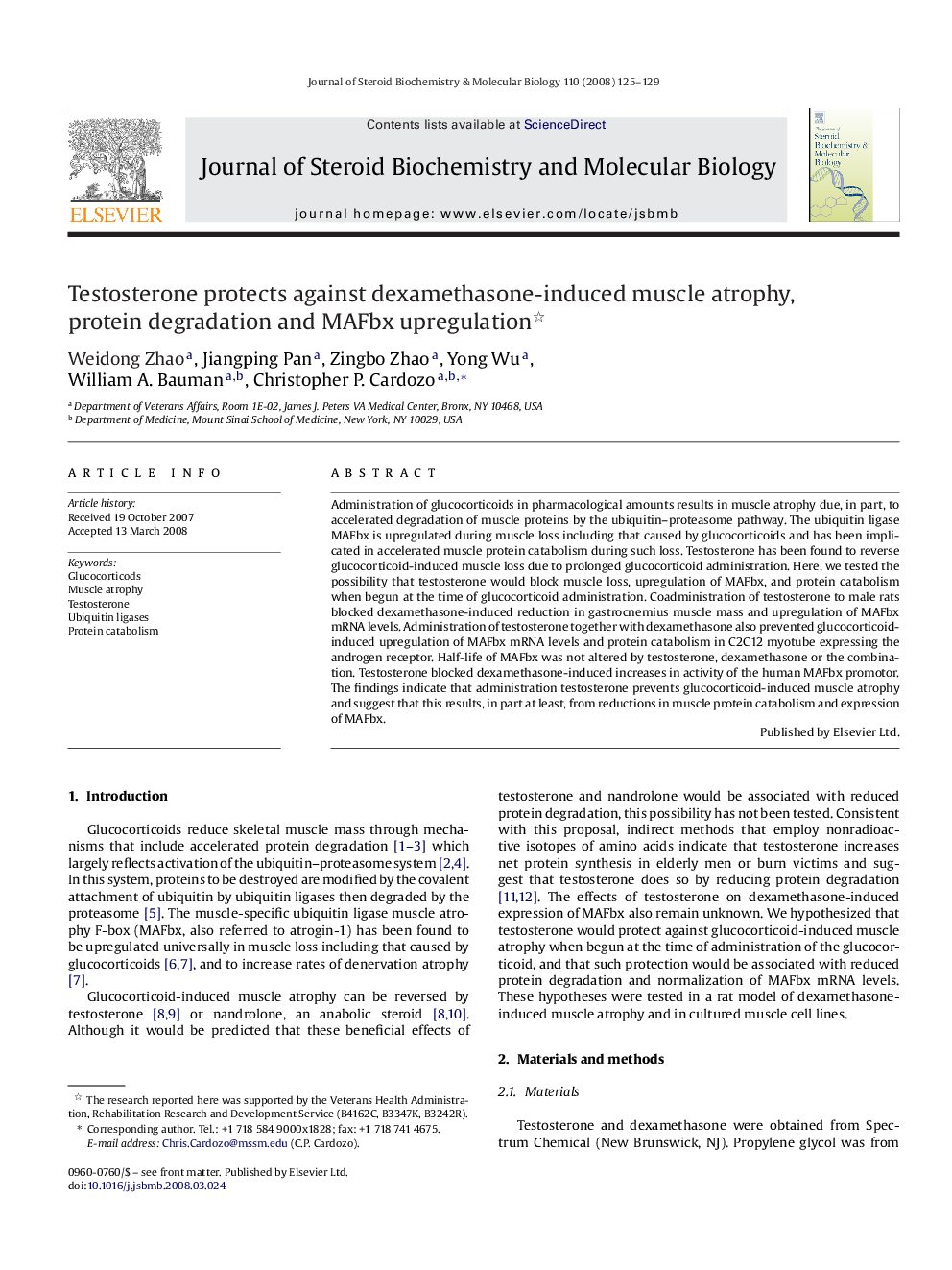| Article ID | Journal | Published Year | Pages | File Type |
|---|---|---|---|---|
| 1992662 | The Journal of Steroid Biochemistry and Molecular Biology | 2008 | 5 Pages |
Administration of glucocorticoids in pharmacological amounts results in muscle atrophy due, in part, to accelerated degradation of muscle proteins by the ubiquitin–proteasome pathway. The ubiquitin ligase MAFbx is upregulated during muscle loss including that caused by glucocorticoids and has been implicated in accelerated muscle protein catabolism during such loss. Testosterone has been found to reverse glucocorticoid-induced muscle loss due to prolonged glucocorticoid administration. Here, we tested the possibility that testosterone would block muscle loss, upregulation of MAFbx, and protein catabolism when begun at the time of glucocorticoid administration. Coadministration of testosterone to male rats blocked dexamethasone-induced reduction in gastrocnemius muscle mass and upregulation of MAFbx mRNA levels. Administration of testosterone together with dexamethasone also prevented glucocorticoid-induced upregulation of MAFbx mRNA levels and protein catabolism in C2C12 myotube expressing the androgen receptor. Half-life of MAFbx was not altered by testosterone, dexamethasone or the combination. Testosterone blocked dexamethasone-induced increases in activity of the human MAFbx promotor. The findings indicate that administration testosterone prevents glucocorticoid-induced muscle atrophy and suggest that this results, in part at least, from reductions in muscle protein catabolism and expression of MAFbx.
